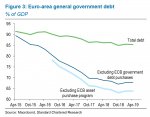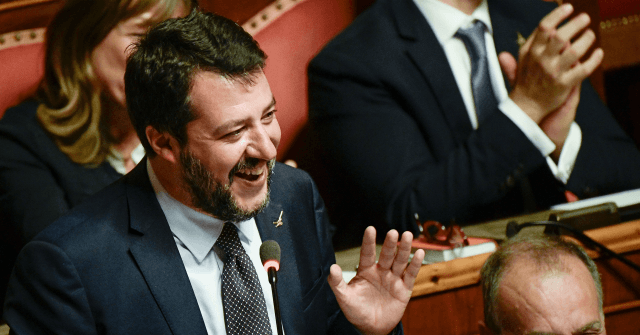Plain Jane
Just Plain Jane
Thread from November 2019
http://www.timebomb2000.com/vb/showthread.php?563182-Europe-Politics-Trade-NATO-November-2019
https://www.reuters.com/article/us-...w-leader-backed-by-radical-wing-idUSKBN1Y40A2
NEWSNOVEMBER 30, 2019 / 6:44 AM / UPDATED 7 HOURS AGO
German far-right AfD party elects new leader backed by radical wing
Joseph Nasr
4 MIN READ
BRUNSWICK, Germany (Reuters) - The far-right Alternative for Germany on Saturday elected a decorator from the east backed by a radical wing within the party as one of two co-leaders.
The election of Tino Chrupalla, a lawmaker from Saxony, is a tribute to former Communist eastern states where the AfD has made big gains in three elections this year.
He will lead Germany’s largest opposition party with Joerg Meuthen, an economics professor from the industrial southern state of Baden-Wuerttemberg who serves as a European Parliament lawmaker.
"It is time to send a clear signal with a double leadership made up of representatives from both the east and west,” Chrupalla told delegates, who elected him in a run-off with over 54% of the vote.
Meuthen secured reelection against two candidates with a two third majority, which made a run-off unnecessary.
“We must become fit to govern,” Meuthen said. “This is our task for the next two years. My path is conservative, peaceful and patriotic.”
The AfD is the biggest opposition party in the Bundestag national parliament, which it entered for the first time in 2017, propelled by voters angry at conservative Chancellor Angela Merkel’s decision in 2015 to admit almost one million mainly Muslim asylum seekers.
The AfD also sits on opposition benches in all of Germany’s 16 state parliaments, where it is ostracized by all established parties, including Merkel’s center-right Christian Democrats (CDU) and the center-left Social Democrats (SPD).
‘RADICALIZATION’
Alexander Gauland, 78, a unifying figure in the AfD who has been a co-leader since 2017, did not stand for reelection. He has said he wants to pass on the baton to a new leadership that ensures the party join a governing coalition with Merkel’s CDU, at least at the state level.
“They call us Nazis, fascists and right-wing terrorists,” Gauland told delegates. “But we need to be wise and resilient. The day will come when a weakened CDU has only one option: us.”
Merkel’s conservatives have said they cannot work with the AfD, saying its anti-immigrant and anti-Semitic rhetoric contributes to an atmosphere of hate that encourages political violence.
As delegates started arriving at the Volkswagen Halle in the western city of Brunswick, hundreds of protesters waved rainbow flags, while some held banners reading, “Against the AfD and its incitement.” Riot police fenced off the arena.
Volkswagen had asked organizers to cover up the carmaker’s name that usually sits on top of the entrance to the venue.
Slideshow (3 Images)
“If we want more success we need to change,” Chrupalla said on Friday during a reception. “We want to move toward the center. This will work because the CDU keeps moving to the left.”
The AfD won around a fourth of votes in elections in three eastern states this year. The party is more popular in former Communist eastern states, with double the support that it has in the west of the country.
“In a few years, we may well have an AfD-CDU coalition, most likely at the state level in the east,” said Matthias Quent, director of the Institute for Democracy and Civil Society. “This could split the CDU. Some CDU members in the east are openly in favor of such a coalition.”
He added: “The AfD’s radicalization will definitely make it more difficult for the party to improve its polling numbers in the west where people are more alarmed by its ethnic nationalism than in the east.”
Additional reporting by Petra Wischgoll and Susanne Neumayer-Remter; Editing by Frances Kerry
Our Standards:The Thomson Reuters Trust Principles.
http://www.timebomb2000.com/vb/showthread.php?563182-Europe-Politics-Trade-NATO-November-2019
https://www.reuters.com/article/us-...w-leader-backed-by-radical-wing-idUSKBN1Y40A2
NEWSNOVEMBER 30, 2019 / 6:44 AM / UPDATED 7 HOURS AGO
German far-right AfD party elects new leader backed by radical wing
Joseph Nasr
4 MIN READ
BRUNSWICK, Germany (Reuters) - The far-right Alternative for Germany on Saturday elected a decorator from the east backed by a radical wing within the party as one of two co-leaders.
The election of Tino Chrupalla, a lawmaker from Saxony, is a tribute to former Communist eastern states where the AfD has made big gains in three elections this year.
He will lead Germany’s largest opposition party with Joerg Meuthen, an economics professor from the industrial southern state of Baden-Wuerttemberg who serves as a European Parliament lawmaker.
"It is time to send a clear signal with a double leadership made up of representatives from both the east and west,” Chrupalla told delegates, who elected him in a run-off with over 54% of the vote.
Meuthen secured reelection against two candidates with a two third majority, which made a run-off unnecessary.
“We must become fit to govern,” Meuthen said. “This is our task for the next two years. My path is conservative, peaceful and patriotic.”
The AfD is the biggest opposition party in the Bundestag national parliament, which it entered for the first time in 2017, propelled by voters angry at conservative Chancellor Angela Merkel’s decision in 2015 to admit almost one million mainly Muslim asylum seekers.
The AfD also sits on opposition benches in all of Germany’s 16 state parliaments, where it is ostracized by all established parties, including Merkel’s center-right Christian Democrats (CDU) and the center-left Social Democrats (SPD).
‘RADICALIZATION’
Alexander Gauland, 78, a unifying figure in the AfD who has been a co-leader since 2017, did not stand for reelection. He has said he wants to pass on the baton to a new leadership that ensures the party join a governing coalition with Merkel’s CDU, at least at the state level.
“They call us Nazis, fascists and right-wing terrorists,” Gauland told delegates. “But we need to be wise and resilient. The day will come when a weakened CDU has only one option: us.”
Merkel’s conservatives have said they cannot work with the AfD, saying its anti-immigrant and anti-Semitic rhetoric contributes to an atmosphere of hate that encourages political violence.
As delegates started arriving at the Volkswagen Halle in the western city of Brunswick, hundreds of protesters waved rainbow flags, while some held banners reading, “Against the AfD and its incitement.” Riot police fenced off the arena.
Volkswagen had asked organizers to cover up the carmaker’s name that usually sits on top of the entrance to the venue.
Slideshow (3 Images)
“If we want more success we need to change,” Chrupalla said on Friday during a reception. “We want to move toward the center. This will work because the CDU keeps moving to the left.”
The AfD won around a fourth of votes in elections in three eastern states this year. The party is more popular in former Communist eastern states, with double the support that it has in the west of the country.
“In a few years, we may well have an AfD-CDU coalition, most likely at the state level in the east,” said Matthias Quent, director of the Institute for Democracy and Civil Society. “This could split the CDU. Some CDU members in the east are openly in favor of such a coalition.”
He added: “The AfD’s radicalization will definitely make it more difficult for the party to improve its polling numbers in the west where people are more alarmed by its ethnic nationalism than in the east.”
Additional reporting by Petra Wischgoll and Susanne Neumayer-Remter; Editing by Frances Kerry
Our Standards:The Thomson Reuters Trust Principles.


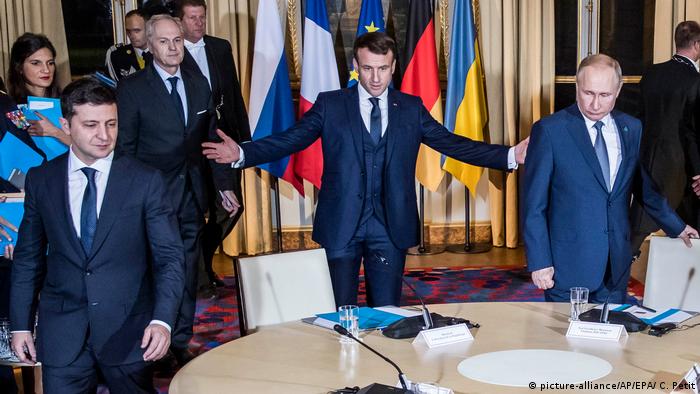
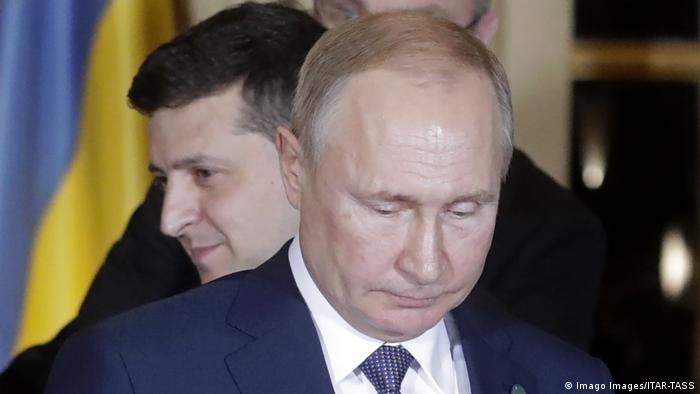
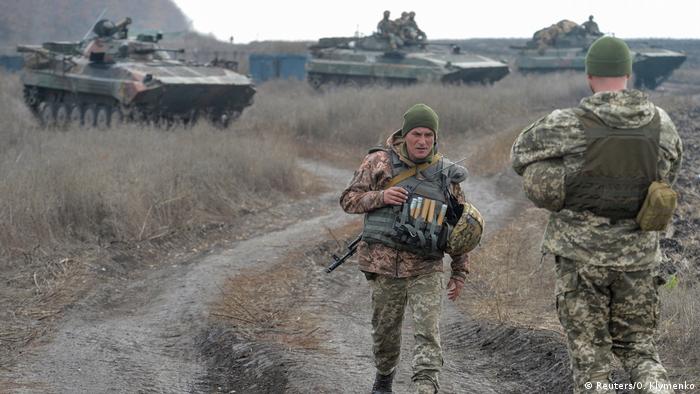

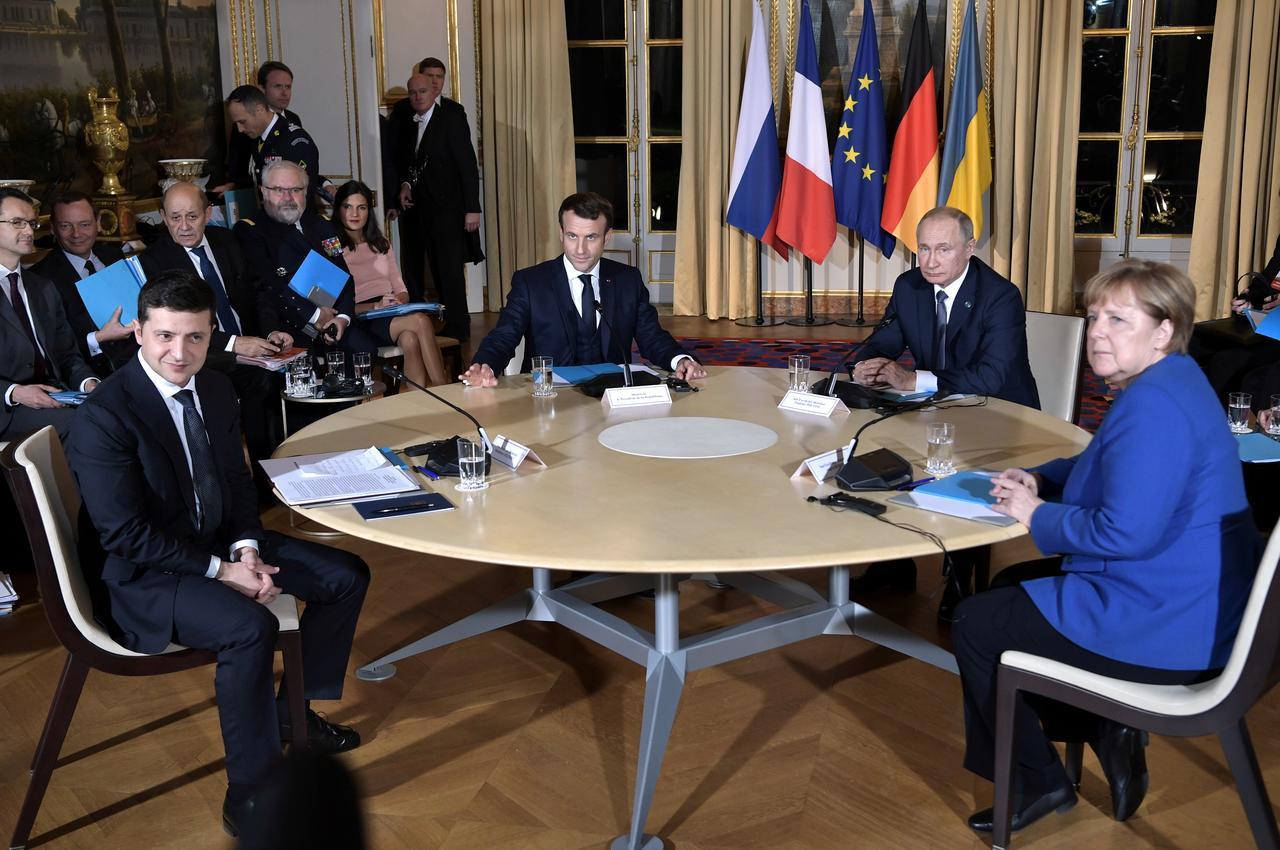 Normandy-format summit in Paris on Monday, via Reuters.
Normandy-format summit in Paris on Monday, via Reuters.
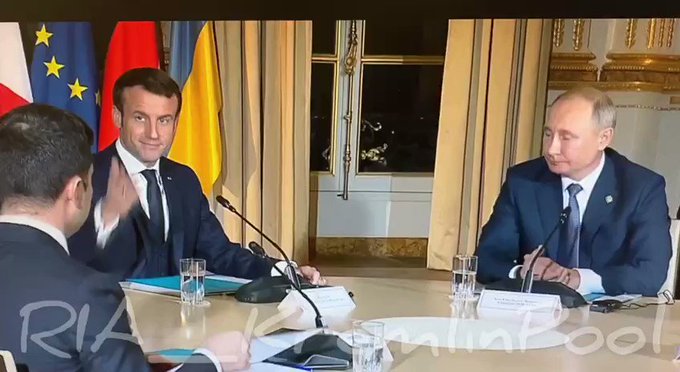

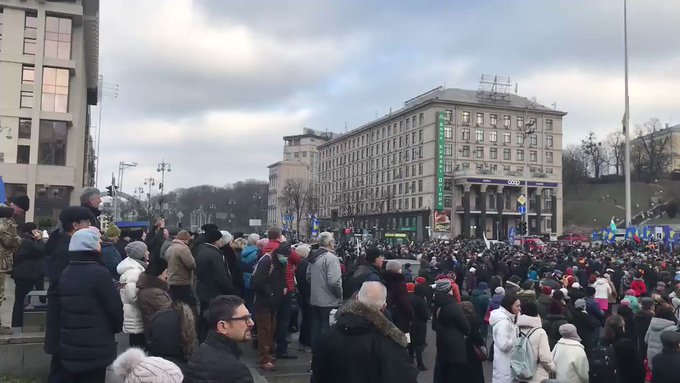
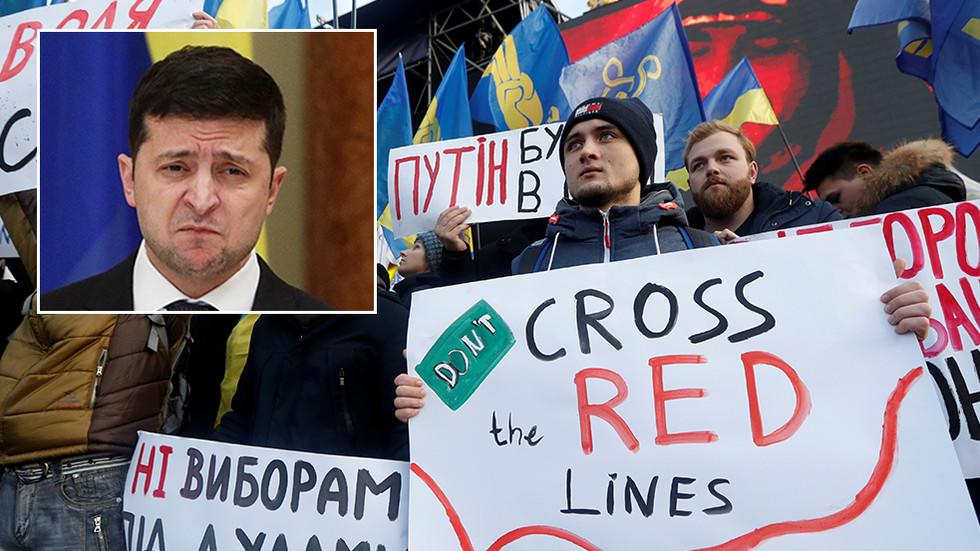 Protests amid the "Normandy Four" summit underway in Kiev's Maidan Square, via Reuters.
Protests amid the "Normandy Four" summit underway in Kiev's Maidan Square, via Reuters.
